ADI Part 3 Risk Management
What Is Risk Management?
Risk Management – Sharing the safety
There are five competencies in the adi part 3 risk management category. You can score three points for each, you’ve got a maximum of 15 points. So, you basically just—you have to get over half (8) to pass.
When the examiner is observing your lesson, he needs to know that safety is paramount, and that you can control the pupil, control situations, be aware of your surroundings, and make sure you, the pupil and the general public are safe
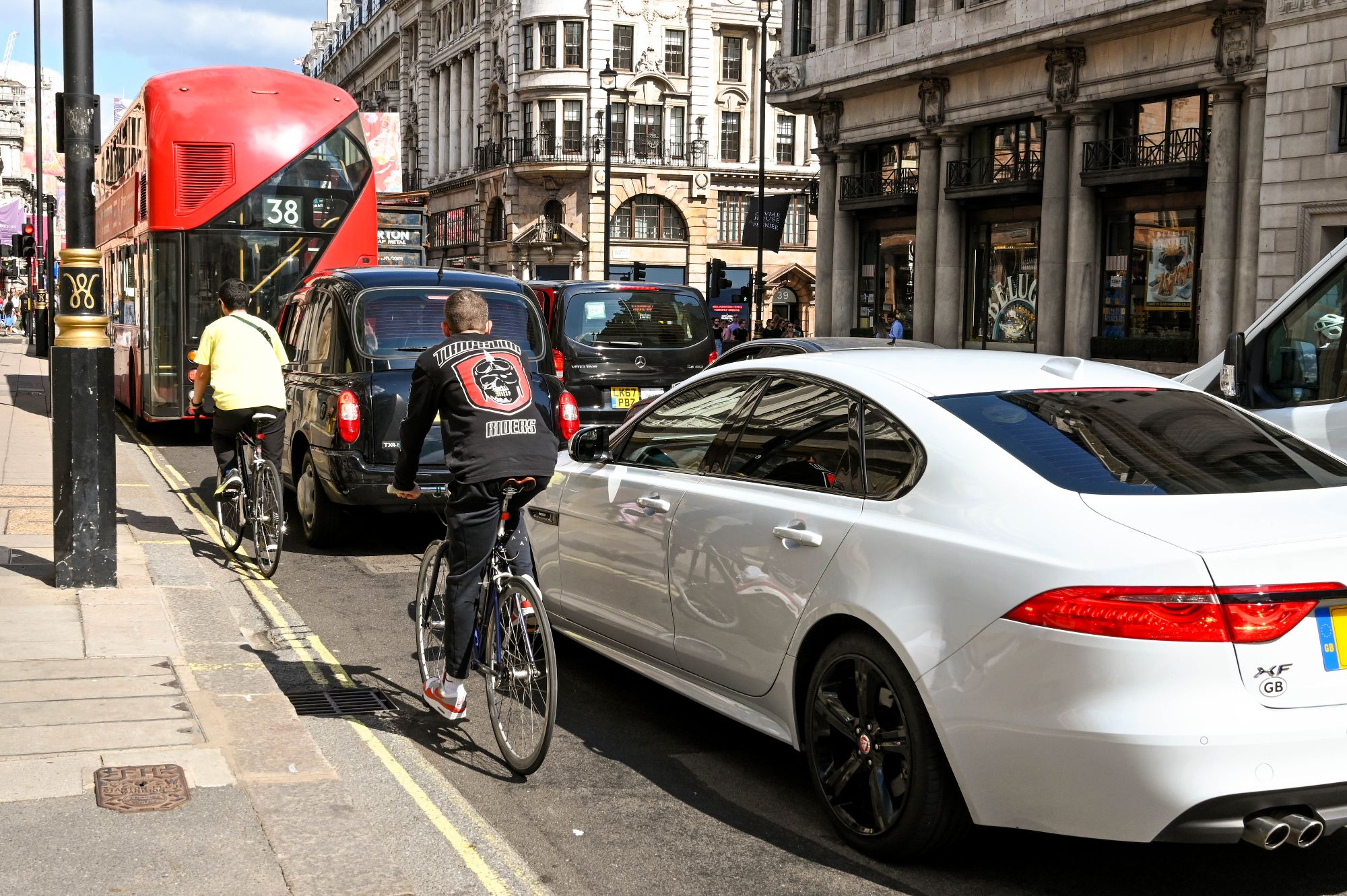
ADI Part 3 Risk Management
That doesn’t mean that during your test a dramatic incident has to happen, it’s not like you have to press the brake, or grab the steering wheel, or tell your pupil to slow down.
If you’re in control, then those situations would be prevented, because the skill of a driving instructor is to read the situations ahead, be aware of your pupil and their limits and what they can and can’t do, then help them to prevent the crisis of you having to jump in and use brakes, or something dangerous potentially happening.
You should be able to use proactive Q&A, and stay ahead of your pupil, so you can plan and manage these situations, hence risk management, how you’re managing the risk.
Understand the subject more fully with our guide
Complete Guide for UK Driving Instructors - ADI Part 3 and ADI Standards Check Test Guide is professionally designed to help trainees and qualified driving instructors pass their ADI Part 3 and ADI Standards Check Test
Including ✓ Fault Identification and Analysis ✓ Fault Correction ✓ Learning and Teaching Styles ✓ Understanding the ADI Part 3 Marking Sheet ✓ Focal and Reference Points ✓ Commentary driving ✓ ADI Part 3 Lesson Plan Outlines ✓ Teaching and Learning Styles ✓ ADI Part 3 Phrases
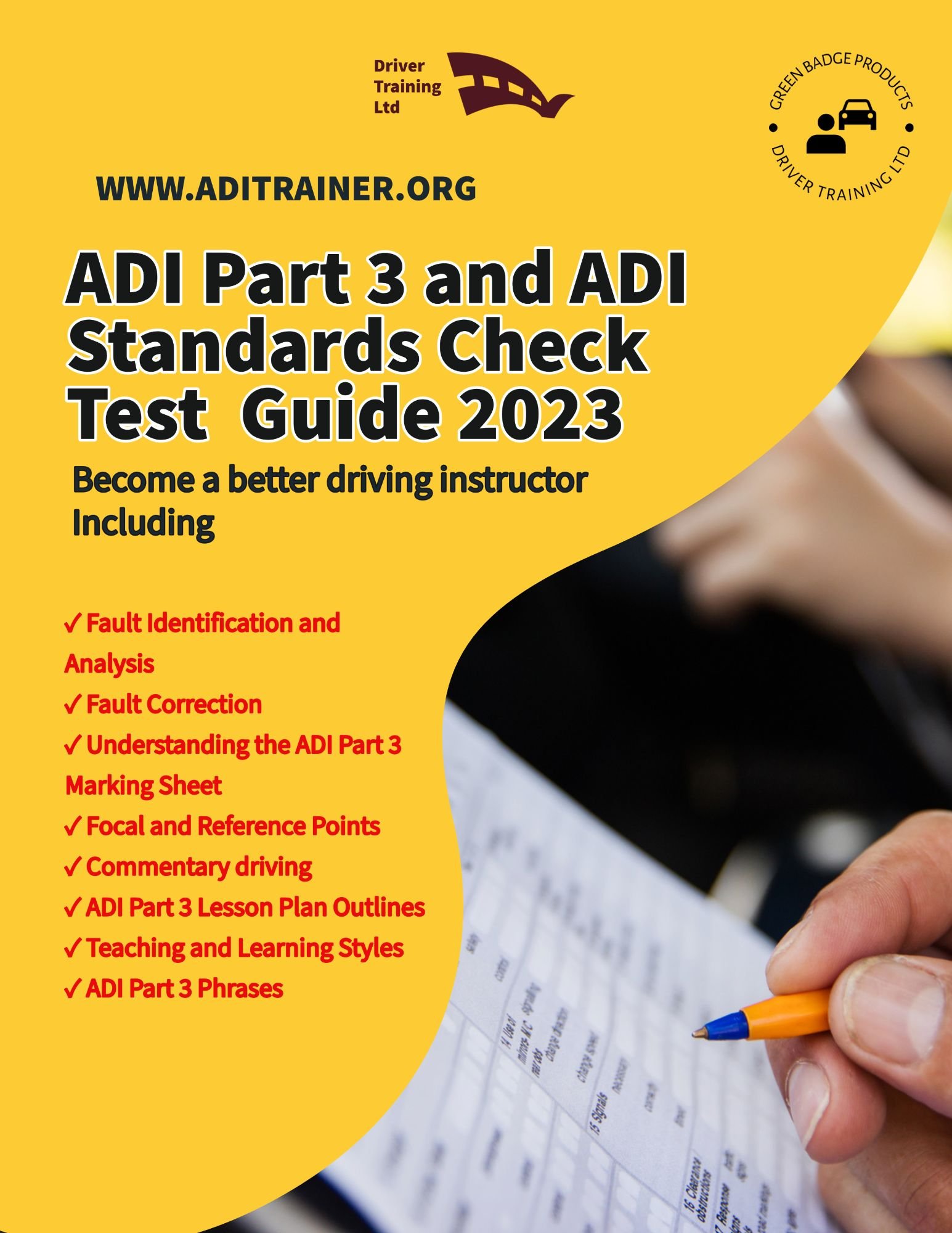
Risk Management Section Explained

Did the trainer ensure that the pupil fully understood how the responsibility for risk would be shared?
Who is doing what?
What are the jobs? What are the risks? What is the pupil responsible for? What do they want from you, the trainer? How will they let you know if this changes?
What will happen if the situation changes or develops and you need to step in?
A common myth is that you need to say “I have dual controls and I will use them if necessary”.
However, what do those duals mean to that pupil at that time?
In an early lesson, they may represent safety and support.
Nearer to independence, they may represent failure or inadequacy.
If you don’t ask, how will you know?
Also part of sharing the risk involves as they get better at reaching their goals, you pulling them up and gaining agreement that for the next one or two (of whatever you are working on) you will leave the decisions up to them as you feel they are getting to the point where they are making the right decisions by themselves. But you will still be there to assist if needed.

Was the trainer aware of the surroundings and the pupil’s actions?
Were you looking in the right place at the right time?
In the picture - you can see the instructor is NOT looking at the pupil - has she set the mirror correctly?
Did you see what was happening around you?
Did you see what the pupil did OR didn’t do? Did you see it early enough?
The most common sign you were not looking is when you ask the pupil, “Did you check your mirrors then?”
You shouldn’t need to ask – If you are watching the pupil, you should already know and be able to say it as a statement of fact.
Blindspot checks?, not relying on mirrors alone?, and looking AT your pupil.
Our Best Selling Books for ADI Part 3 and ADI Standards Check
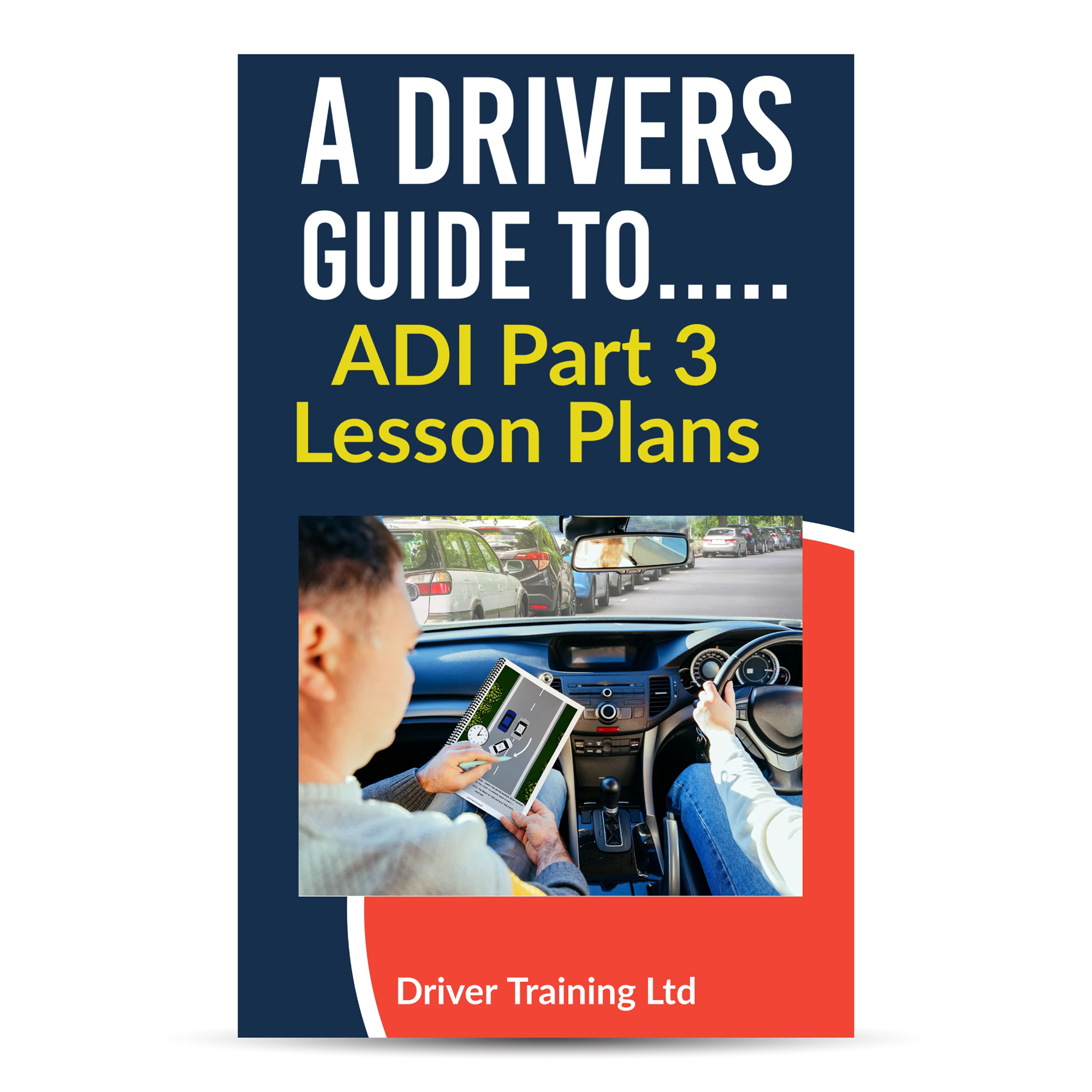
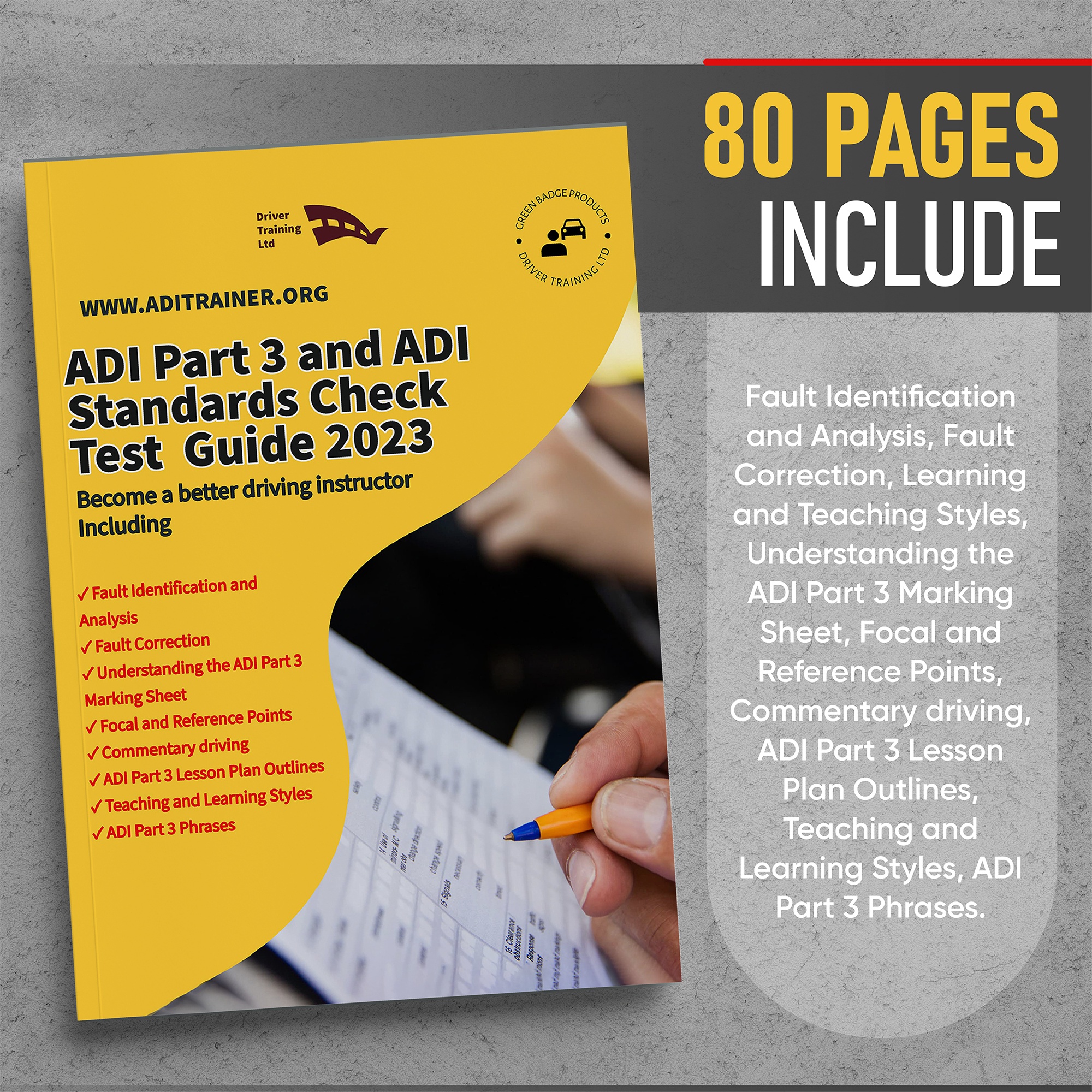
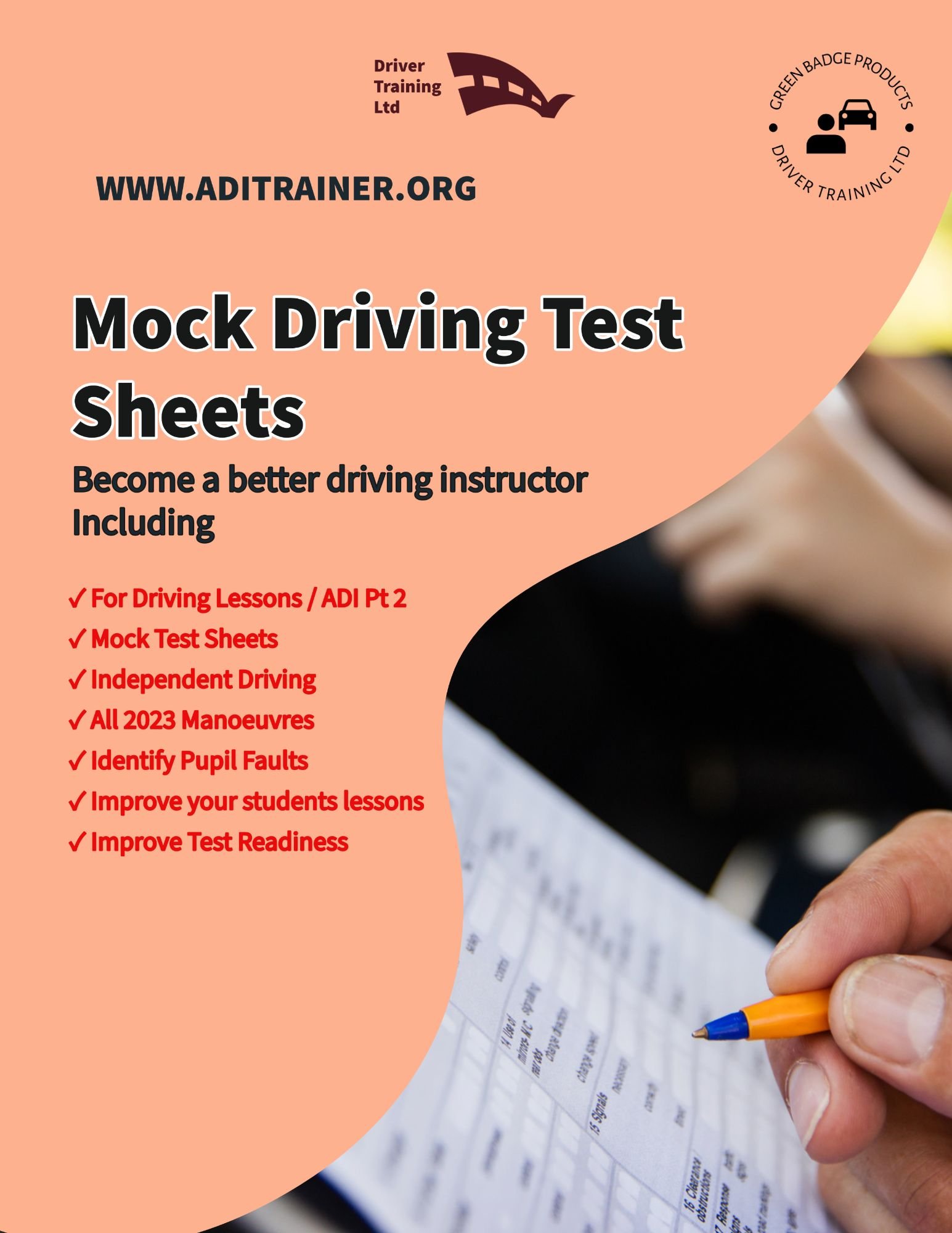
Were directions and instructions given to the pupil clear and given in good time?
This is fairly self-explanatory.
But notice there are 2 parts to this
FIRST - Were directions clear and given in good time
Directions
Are they clear and concise – For a newer pupil to say At the roundabout take the third exit – Is that straight ahead third exit, right 3rd exit? – Unless you are working on road markings and signs it is more likely to cause confusion for the pupil.
Or of course suddenly shouting turn left here!! And then telling the pupil that they didn’t do the MSPSL routine!
Second - Were the Instructions clear and given in good time?
To say to a pupils check the mirrors or Dont forget to do mirror, mirror - isn't clear - do you mean centre and left or centre and right?
"Steer!!" - Do you mean turn the wheel a quarter of a turn, half a turn, do you want me to think of it as a clock and steer 10 oclock, 2 oclock 12 o'clock - what is it that you actually mean?
A great way to work on this is by recording yourself and listening back to it. It is amazing what people think they say.
Remember pupils will often need a couple of extra seconds to think which is left and which is right

Was any verbal or physical intervention by the trainer timely and appropriate?
Remember that your first dual control is your voice, then ANY actions.
Interventions must occur if they are needed, and should be suitably timed.
If they occur should be explained and discussed
Or do you find yourself hitting the dual controls first and then saying "Slow Down"
If this is the case, then your commentary may be lacking or you are not managing the risk far enough ahead

Was sufficient feedback given to help the pupil understand any potential safety critical incidents?
In short, if this was what you would class as a serious fault, one where you would have failed your adi part 2 or the pupil would have failed there driving test, then you need to pull them up and talk about it.
Don't try and say it whilst on the move, the pupil is concentrating on driving and will just mentally switch your voice off.
Forget the 40 minutes wheels moving, if what they did would have caused themselves or another road user a serious problem, you need to pull up and discuss it!!
Then find out -
Does the pupil understand what happened?
Do you as the trainer understand why it happened?
Does the pupil understand what action the trainer took and why?
Does the pupil understand the consequences and potential outcomes of what happened?
Contact Us
Hours
Monday - Friday:
09:00 am - 6:00 pm
Saturday - Sunday:
10:00 am - 3:00 pm
